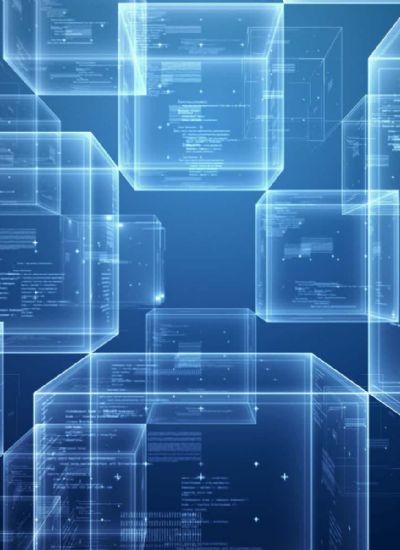PC Upgrading - Get to Know Your Hardware
The horrible catch 22 of the computer world will forever self perpetuate; can't live with them, can't live without them.
But whether you're an enthusiast or a circumstantial user, PC upgrading will forever be a part of your life.
I remember a time when you bought a PC and that was that.
That computer would serve as your home unit for the foreseeable future (most of them boasting 'forever'!), and when it came time to replace the machine it would be replaced in its entirety.
Out with the old, in with the new.
Real enthusiasts and gamers would perhaps upgrade elements of their machine, but it was largely unheard of throughout the commercial consumer market.
These days, though, I would dare say that everybody who is even so much as thinking about buying a computer needs the basic grasp of every hardware component just to keep up with the latest utilities.
We're getting to the stage already where even the computer I put together less than 2 years ago would struggle running the latest operating systems, let alone running any software on them.
Upgrading can take time, can be expensive, and if you don't know what you're doing it will require the aid of someone else who would probably charge a lot of money.
But to explain it roughly the components that make up your computer are as such: Motherboard: This is the mainframe of your computer.
It's the unit upon which everything is connected and everything communicates through.
Generally speaking this is upgraded the least, but like anything else it will eventually need to be upgraded, as connection-type changes are made over the years, eventually your motherboard will not house the latest components.
CPU: This is the processing unit of your computer, the brain if you will.
It is the unit that takes on incoming instructions from programs and other computer functions.
These generally come as part of the motherboard as they are a rather specialist item to replace and are usually upgraded along with the motherboard as opposed to on its own.
RAM: "Random-access memory" is a unit of memory storage that your computer uses temporarily while it carries out tasks.
The most common type used today is DDR2 and comes in varying capacities.
The connection type you require relies entirely on your motherboard, so be warned and make sure you check what RAM your motherboard takes before making a purchase.
Hard Drive: This is where all your information is stored.
Programs, files, operating systems, and games - they are all stored on this unit.
They come in varying sizes, the bigger the better.
As with everything else, check the connection type before purchasing.
Graphics cards: Now we are getting onto things which perhaps aren't immediately essential, but are definitely useful if you require powerful video capabilities for either games, or particularly these days HD video playback.
Graphics cards are a separate unit attached to the motherboard which have their own 'thinking power', and therefore free up some of your computer's power for other tasks, as it won't be needed to process video.
Depending on their age they come with varying connection types, so be warned!
But whether you're an enthusiast or a circumstantial user, PC upgrading will forever be a part of your life.
I remember a time when you bought a PC and that was that.
That computer would serve as your home unit for the foreseeable future (most of them boasting 'forever'!), and when it came time to replace the machine it would be replaced in its entirety.
Out with the old, in with the new.
Real enthusiasts and gamers would perhaps upgrade elements of their machine, but it was largely unheard of throughout the commercial consumer market.
These days, though, I would dare say that everybody who is even so much as thinking about buying a computer needs the basic grasp of every hardware component just to keep up with the latest utilities.
We're getting to the stage already where even the computer I put together less than 2 years ago would struggle running the latest operating systems, let alone running any software on them.
Upgrading can take time, can be expensive, and if you don't know what you're doing it will require the aid of someone else who would probably charge a lot of money.
But to explain it roughly the components that make up your computer are as such: Motherboard: This is the mainframe of your computer.
It's the unit upon which everything is connected and everything communicates through.
Generally speaking this is upgraded the least, but like anything else it will eventually need to be upgraded, as connection-type changes are made over the years, eventually your motherboard will not house the latest components.
CPU: This is the processing unit of your computer, the brain if you will.
It is the unit that takes on incoming instructions from programs and other computer functions.
These generally come as part of the motherboard as they are a rather specialist item to replace and are usually upgraded along with the motherboard as opposed to on its own.
RAM: "Random-access memory" is a unit of memory storage that your computer uses temporarily while it carries out tasks.
The most common type used today is DDR2 and comes in varying capacities.
The connection type you require relies entirely on your motherboard, so be warned and make sure you check what RAM your motherboard takes before making a purchase.
Hard Drive: This is where all your information is stored.
Programs, files, operating systems, and games - they are all stored on this unit.
They come in varying sizes, the bigger the better.
As with everything else, check the connection type before purchasing.
Graphics cards: Now we are getting onto things which perhaps aren't immediately essential, but are definitely useful if you require powerful video capabilities for either games, or particularly these days HD video playback.
Graphics cards are a separate unit attached to the motherboard which have their own 'thinking power', and therefore free up some of your computer's power for other tasks, as it won't be needed to process video.
Depending on their age they come with varying connection types, so be warned!




















